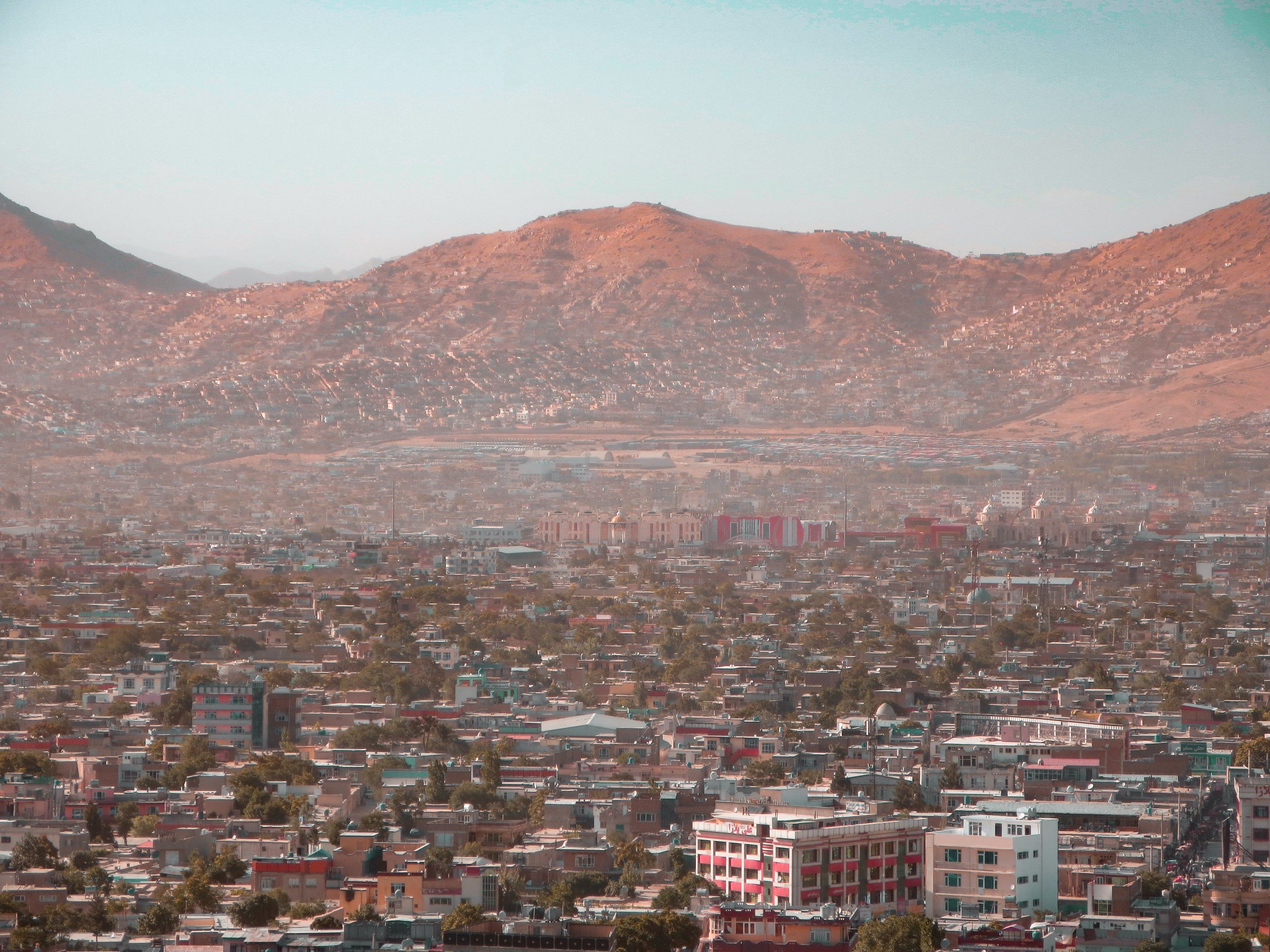PROJECTS
Here, you will find a one-stop-shop for each SOC ACE research project including publications, information about events and external engagement, media and contact details for researchers.
Negotiating with criminal groups: Colombia’s Total Peace policy
This research results from the opportunity provided by the approval and implementation of the Total Peace policy in Colombia, a country that, despite the signature of a peace process in 2016, still has numerous armed and criminal groups inflicting significant violence onto the population. The Total Peace policy allows the government to negotiate with armed and criminal groups in order to reduce violence and protect life, providing a unique opportunity to conduct research on ongoing negotiations. This project aims to research the legal framework applied for the different types of engagement at the local and national level, the way in which criminal governance and the Total Peace policy interacts and identify the extent into which legal frameworks and local criminal governance structures shape negotiations with armed and criminal groups in Colombia.
The centrality of the margins: Borderlands, illicit economies and uneven development
This research project examines how conflict-affected borderlands, like those between Myanmar and China, are intricately connected to development in metropolitan centres. It challenges the idea that these areas are marginalised due to a lack of integration. The project aims to inform strategies for addressing borderland economies and transnational crime.
Developing government information and accountability systems for combating serious organised crime: Medellín demonstration project
Like most cities, the Medellín Mayor’s Office and the Colombian police focus their efforts on managing what they measure--homicides and violent crime. While of course there are legitimate reasons to tackle violence, there is relatively less attention to other deleterious effects of SOC: high levels of civilian extortion, criminal political control of civilians, criminal capture of local state and community governments, retail drug sales, and so forth. In addition to being costly in and of themselves, these actions also undermine the local control and legitimacy of the state. We believe that these harmful consequences are overlooked in part because they are not measured. We aim to demonstrate the feasibility of collecting a wide variety of metrics on SOC and establish the practice of collecting, monitoring, and using these metrics for policy analysis and program/policy design and evaluation.
Addressing organised crime and security sector reform (SSR) and governance: Linkages, processes, outcomes and challenges
The research project aims to deepen the evidence base on the connections between SSR/G and SOC – how they influence and impact one another, positively and adversely. It seeks to encourage collaboration across academic disciplines and professional silos, integrating SSR/G perspectives and programming into the fight against SOC and vice versa.
Organised crime as irregular warfare: a framework for assessment and strategic response
This project applies lessons from irregular warfare to countering organized crime. Irregular warfare is often defined as a violent competition over legitimacy, and it subsumes the problems of terrorism, insurgency, and political instability. Phase 1 of this research project established the commonalities between organized crime and irregular warfare: their shared nature and the pitfalls relating to response. On this basis, Phase 2 presents a Framework for Analysis and Action originally designed for irregular warfare but adapted here to the context of organized crime. The Framework consists of two “parts”: the Strategic Estimate (which maps the problem, explores its drivers, frames, and strategies, and critiques the current response) and the Course of Action (which uses the Estimate to design an appropriate strategy, complete with a theory of success, phasing, assumptions, and metrics). In a third phase of this project, the modified framework will be tested through application to key cases.
Para-statal armed groups, illicit economies and organised crime
This two-phase research project starts by examining the nexus between parastatal armed groups (PAGs), illicit economies and organised crime, with a particular focus on the borderlands of Afghanistan, Myanmar and Colombia. In two research papers, this first phase has explored the relationship between coercive brokers, public authorities and frontier governance, how paramilitaries become involved in illicit economies and organised crime, the relationship between paramilitaries, organised crime and politics, and what policy combinations can address coercive brokerage in conflict-affected borderlands. The second phase has brought together policymakers to explore new approaches to addressing the challenges posed by paramilitaries. Case studies highlighting key lessons from interventions in Colombia, Myanmar and Northern Ireland will be produced along with two further research papers.
Organised crime groups & peace processes
Organised crime actors can be spoilers in peace processes or partners in peace. Negotiating with organised crime groups and addressing criminal agendas in peace processes has become a reality in practice. It may be preferable in contexts where repressive tactics have failed to resolve the problem or worse, have fuelled more violence and criminality. Out of options, state actors have turned to negotiation. Negotiation may not only be considered preferable, but also necessary where criminal groups have strong territorial control, filling governance gaps and gaining legitimacy. International peace operations have also begun to recognise the need to address SOC to avoid entrenching criminal structures in the post-conflict state.
Incorporating serious organised crime into understandings of elite bargains & political settlements
This research builds on previous work on how states and societies that are in the throes of violent conflict can evolve from exclusionary political systems anchored in narrow pacts and agreements among elites (or what is referred to in the literature as “elite bargains”) into more peaceful, open, representative and inclusive political systems in the longer term (see the synthesis report here). An important insight from that research was that organised crime actors remain a significant gap in the evidence base on elite bargains and political settlements (or the ‘rules of the game’, both on paper and how they are …
Narcotics smuggling in a new Afghanistan
This research is part of the project ‘Monitoring the evolution of the illicit economy in Afghanistan’ which seeks to develop an overarching framework to better understand how a monitoring system for illicit markets in Afghanistan could operate. This will provide policy-makers in Europe and elsewhere with more advanced tools for scenario planning illicit trade developments and thereby formulate more effective policy responses against them. The research paper examines Afghanistan’s narcotics trade and smuggling patterns, which are intertwined in different ways with the economic fate of the Afghan state and society.
Assessing the illicit finance and terrorist financing nexus in the case of Afghanistan since the fall of the Taliban in 2001
With the fall of the Ghani government in August 2021 and the return of the Taliban to power in Afghanistan, the future of the international community’s financial relationships with the governing regime in Kabul should be reassessed. An understanding of the difference between illicit finance risks and terrorist financing risks emanating from the country, as well as the nexus between them, is critical for this purpose.
Human trafficking in the Afghan context
Decades of wars and internal conflicts have driven generations and millions of Afghan families into impoverishment, illiteracy, unemployment, and displacement, rendering them unable to provide for their household members, particularly children. Political instability and conflicts have increased human suffering and vulnerabilities, eroded community resilience, stripped people of legitimate and viable economic options, opportunities, and livelihoods, as well as amplifying (in several cases also creating new forms of) human trafficking activities and practices. The research first provides a brief overview of human trafficking situations, forms, their widespread reach and practices in the Afghan context before and after the Taliban’s takeover in August 2021.
Illicit markets and targeted violence in Afghanistan
This project examines the potential of using illicit market violence in Afghanistan as a proxy to project current and future trends of other illicit and criminal market development in the country. It does so by using a methodology developed by GI-TOC to examine targeted assassinations. By applying variables from the methodology to research and analysis on targeted violence in Afghanistan during a period of increased violent crimes against civilians (2020-2021), the project map recent trends in the country and aims to explore whether monitoring such violence can serve as a proxy for understanding the changing dynamics of illicit economies and criminal actors at the national and regional scale.













